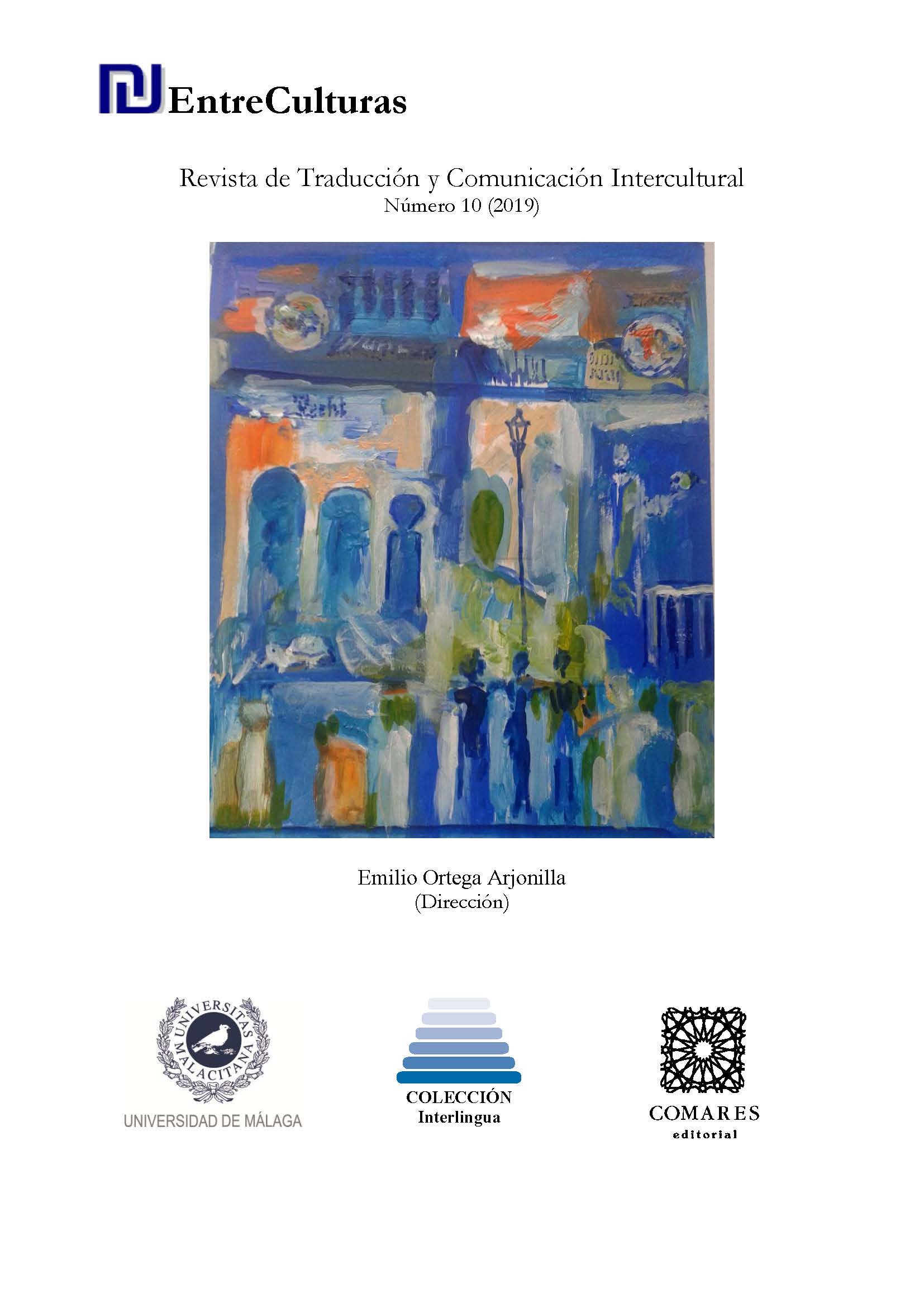Translation strategies and analysis in the case of collective translation
DOI:
https://doi.org/10.24310/Entreculturasertci.v1i10.9604Keywords:
collective translation, strategies, analysis, Arabic poetryAbstract
In this research, we try to illustrate in details, aspects of the field concerning the resources of the original text, subject of study, its author, criteria of selection of poems and the analysis of some examples about translation strategies of the target text, taking one of the translated texts as an emblematic example. The theme of the communication will revolve around the collective poetic Translation as a didactic instrument, within the translator's macrocompetence, intercultural subcompetence. All that is developed below are ideas that will need to be deepened, nuanced and enriched in view of future research on the subject. This article is based on four areas related with the unpublished poem of Hussein Abdul Razzaq which we selected as an example of collective translation. We received the mentioned poem together with the magnificent anthology of the same author, published in 2004 by Al Babtain Foundation of Kuwait.
Downloads
Metrics
References
Abdul Razzaq, Hussein: http://www.albabtainprize.org/Encyclopedia/poet/0887.htm [consulta: 20 de abril de 2013].
Abdul Razzaq, Hussein: Estudio sobre Al-Ándalus en la poesía árabe contemporánea. Ed. Fundación Abdulaziz Saud Al-Babtain para la creatividad poética, noveno período de sesiones, Kuwait 1425/2004 (traducción propia ya que el libro sólo existe en versión árabe), disponible en http://www.albabtainlibrary.org.kw/new/main/publish/86.pdf [consultado: 10 de diciembre 2013].
García Gómez, Emilio (1982): Poemas arábigo andaluces. Madrid, Ed. Espasa Calpe, Col. Austral nº 162, 1982, p.23.
Newmark, Peter (1992): Manual de traducción, Madrid, Cátedra [traducido por Virgilio Moya].
Downloads
Published
How to Cite
Issue
Section
License
All contents published in Entre culturas. Revista de traducción y comunicación intercultural are protected under the Creative Commons Attribution-NonCommercial-ShareAlike 4.0 International (CC BY-NC-SA 4.0) license. All about this license is available in the following link: <http://creativecommons.org/licenses/by-nc-sa/4.0>
Users can copy, use, redistribute, share and exhibit publicly as long as:
- The original source and authorship of the material are cited (Journal, Publisher and URL of the work).
- It is not used for comercial purposes.
- The existence of the license and its especifications are mentioned.
There are two sets of authors’ rights: moral and property rights. Moral rights are perpetual prerogatives, unrenounceable, not-transferable, unalienable, imprescriptible and inembargable. According to authors’ rights legislation, Entreculturas. Revista de traducción y comunicación intercultural recognizes and respects authors moral rights, as well as the ownership of property rights, which will be transferred to University of Malaga in open access. The property rights are referred to the benefits that are gained by the use or the dissemination of works. Entreculturas. Revista de traducción y comunicación intercultural is published in an open access form and it is exclusively licenced by any means for doing or authorising distribution, dissemination, reproduction, , adaptation, translation or arrangement of works.
Authors are responsable for obtaining the necessary permission to use copyrighted images.





7.png)
